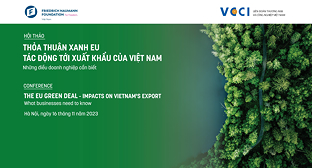EU Ends Tariff on Hynix Chips
13/04/2008 12:00
The Council of the European Union lifted countervailing duties on imports of DRAM (dynamic RAM) chips made by Hynix Semiconductor on Monday, the South Korean chip maker said.
The EU's 33 percent tariff on all Hynix DRAM made in South Korea had been in place since April of 2003, a response to low-cost loans from state-controlled banks that kept Hynix afloat during a severe DRAM industry downturn at the start of the decade. At the time the tariff was imposed, the EU ruled that the loans amounted to illegal aid from the state.
But in 2005, the World Trade Organization ruled against the EU over the issue, asking the EU to consider lowering the tariff. But it wasn't until Monday that the European body finally relented.
The lifting of the EU duties is retroactive to
The EU tariff, as well as similar countervailing duties against Hynix chips by the
"Hynix's strong performance and return on investment over the 2003-2007 period demonstrates the sound commercial judgment of Hynix creditors back in 2001 and 2002 when they agreed to restructure Hynix debt. There was no government interference, just a wise business decision," the company said.
The company was able to beat one loophole in the duties: that they were all to be placed only on Hynix DRAM made in
Hynix quickly upgraded a factory in
Hynix also increased direct sales to PC assemblers in Eastern Europe where the tariffs were not in place, as well as
These quick moves revived Hynix, and it is now one of the most profitable DRAM makers in the world.
The
Dan Nystedt, IDG News Service
Source: www.pcworld.com
Các tin khác
- Businesses capitalize on recovery momentum to explore market expansion (17/04/2024)
- Canada is second largest consumer of Vietnamese pangasius in CPTPP bloc (17/04/2024)
- India’s tariff removal on several US products benefiting farmers: Katherine Tai (17/04/2024)
- Thailand Contemplates Protective Tariffs on Chinese Imports Amidst Surging Trade Deficit (17/04/2024)
- Vietnam becomes largest banana exporter to Chinese market (17/04/2024)
 Home
Home
 About Us
About Us




















